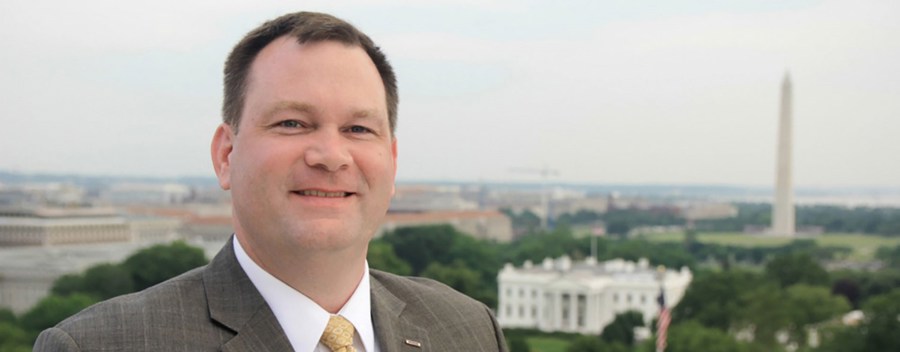
Meet Mathew Tully '02, founder of Tully Rinckey PLLC
In the late 1990s, Mathew Tully ’02, who was then a First Lieutenant Colonel in the U.S. Army, was working as a federal correctional officer at the Metropolitan Correctional Center when he realized something was not right. “I was given the worst shifts, given the worst days off, given the worst prisoners,” he said. Tully said he was subject to a hostile work environment because of his past and current military service. “It was all in an effort to make me resign,” he said. Since graduating from the Law School and retiring as a Lieutenant Colonel, he has devoted his career to protecting the rights of service members and veterans who have experienced discrimination in the workplace because of their military service.
Today his firm, Tully Rinckey, is nationally recognized as a leader in employment discrimination litigation filed under the Uniformed Services Employment and Reemployment Rights Act (USERRA), which prohibits employment discrimination based on military service. The firm has won several landmark cases, including Hernandez v. Department of the Air Force and Pucilowski v. Department of Justice, about ensuring that personnel records properly reflect military leave. Tully has also successfully argued before the U.S. Supreme Court, in the criminal defense appeal of Jackson v. United States, and he was recognized in 2015 as one of the “most influential and impactful veterans” by HillVets, a group helping veterans to advance in careers following military service.
Tully grew up on Long Island and began his military career as a field artillery officer in the Reserve Officers’ Training Corps (ROTC) at Hofstra University. He dreamed of a career in politics, not law. But he saw a law degree as a gateway to a political career and enrolled in the Law School’s part-time program.
Following law school, Tully and his wife moved to Hunter, NY, where he began representing friends and former colleagues who faced the same discrimination he had faced as a corrections officer. Tully brought his cases under USSERA, at that time a rarely used Gulf War-era statute. Tully was blazing a new trail in this area of law and his caseload grew exponentially.
"Service members with civilian careers who are called to active duty to serve and protect our country should not suffer employment discrimination because of military service,” he said. “Many were coming home to find they had lost their job or that they had been denied the benefits of employment they would have earned had they not been called to service.”
With a thriving employment discrimination practice, Tully grew his firm from a one-man operation to a 75-attorney firm with eight offices. His expertise also has made him a frequently sought-after legal commentator on veterans’ matters for major media outlets such as The Washington Post and on CNN, and he is a syndicated columnist for the Army Times.
Throughout much of his legal career, Tully has also remained a devoted and active member of the military. In 2005, he was deployed to Iraq with the 42nd Infantry “Rainbow” Division and was based at Forward Operating Base Danger in Tikrit, Iraq. As division chief of operations, he was responsible for the organization and implementation of the military’s security and stability operations for the base. In 2008, he was deployed to Egypt as part of Operation Bright Star, which worked to enhance the relationship between the U.S. and the Middle East. In 2012, while deployed in Afghanistan, he was injured and suffered neurological and musculoskeletal damage. He was awarded both the Purple Heart and the Bronze Star. After nearly two decades of service, Tully retired from the military in May 2014.
Tully credits Professor Emeritus Richard Farrell for his mentorship over the years as his legal practice took off.
“Professor Farrell, who taught me evidence, was so helpful to me,” said Tully. “He was someone I kept in touch with after I started my own practice, and he always offered me help and guidance. I would not be where I am now without his help.”
—Andrea Strong ’94